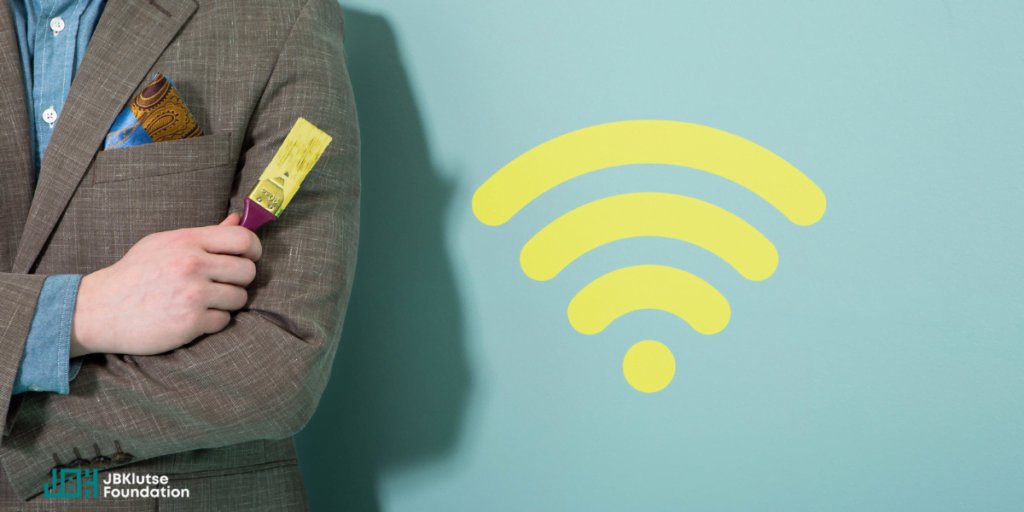Many of us share our lives with friends and family. Sometimes, we even want to share our internet access with them. But do you know the best ways to share your Wi-Fi with others safely? What precautions do you need to take when allowing others onto your network?
Protect Yourself Online: Tips for Safe Internet Sharing

Sharing your internet is not as complicated as it may seem. There are a few simple steps you can take to make sure everyone who uses your internet stays safe. Whether you’re multiplying the number of devices in use on your home network or sharing the connection with guests, the following tips can help you find a balance between access and security.
Create an Isolated Network
Internet sharing comes with the potential risk of exposing your private data or network to unwanted visitors. To ensure that doesn’t happen, you should create an isolated network for anyone who wants to connect. This move will allow you to securely share access without the fear of invaded privacy.
Fortunately, creating an isolated network is easy and can be done in a few steps. First, you should ensure you use a suitable router as your gateway and install the latest firmware. Next, set up a guest network, separate from your primary one, which will be exclusively for guests. Finally, configure the guest’s access with the appropriate security protocols, such as WPA2 (or WPA3 if available). By taking these steps, you can create a secure and safe environment for your friends and family to connect to the internet.
Use a Guest Network
A guest network is a separate wireless network that you can create on your router specifically for visitors to use. Creating a guest network can be incredibly beneficial for several reasons. It helps ensure the protection of the devices connected to your primary network since they won’t share the same connection as the guests’ devices. This layer of security will help protect against unauthorized access. It will keep your computers, tablets, and smartphones safe from malicious software or websites your guests may accidentally visit.
Know Who’s Sharing Your Internet
You don’t want someone using your connection for something shady that could get you in trouble, so it’s best to know exactly who’s accessing your link. One way to do this is by setting up a unique password for each person sharing your internet.
Set up an additional encryption layer for each device, like a VPN, so that no one can gain access without the proper credentials. This way, you can be sure that only the intended people will be doing the connecting, not any random strangers or hackers. It would also help to have users sign a policy agreement.
Keep Your Firmware Up to Date
Firmware is programming that helps manage the hardware on your router. As technology frequently changes, perform the available firmware updates.
Updating your router’s firmware is a crucial step in keeping your internet connection secure and ensuring its performance. Updates can provide added security measures, such as better encryption methods or more comprehensive firewalls. Plus, updating your router’s firmware can help ensure that the device stays compatible with other types of hardware, such as smart home devices.
It’s easy to update the firmware on your router. All you need to do is:
- Log in to the router’s administrator console.
- Check for any available updates.
- Download and install the associated firmware package.
- Restart your router for changes to take effect.
Following this process should take only a few minutes of your time. It’s critical to maintain secure access when sharing an internet connection with friends and family members!
Use a Strong Password and Encryption
When giving friends and family access to your internet connection, set a strong password and use encryption. This move will protect your data from being accessed by anyone without permission.
The best way to do this is to create a strong password with eight or more characters, including at least one number, symbol, and capital letter. Then, ensure you encrypt the connection using the WPA2 encryption protocol because it’s much more robust than WEP. It will protect your connection from any possible hacking attempts.
It’s also important that you change the default network name (SSID) provided by your router. This is the first line of defense, and simply changing the SSID can significantly reduce the threat of cyber-attacks.
Share Your Internet With Peace of Mind
Sharing your internet with family and friends can be a great way to make sure everyone’s online experience is secure and enjoyable. Just make it a priority to set up security measures to protect everyone’s data. Remember your guests to use common sense while browsing. And if you’re interested in making more money from your available bandwidth, you can share your internet and make money on the side with platforms such as Pawns.app!

Are you enjoying your time on JBKlutse?
Articles like these are sponsored free for everyone through the support of generous readers just like you. Thanks to their partnership in our mission, we reach more than 50,000 unique users monthly!
Please help us continue to bring the tech narrative to people everywhere through relevant and simple tech news, reviews, buying guides, and more.
Support JBKkutse with a gift today!